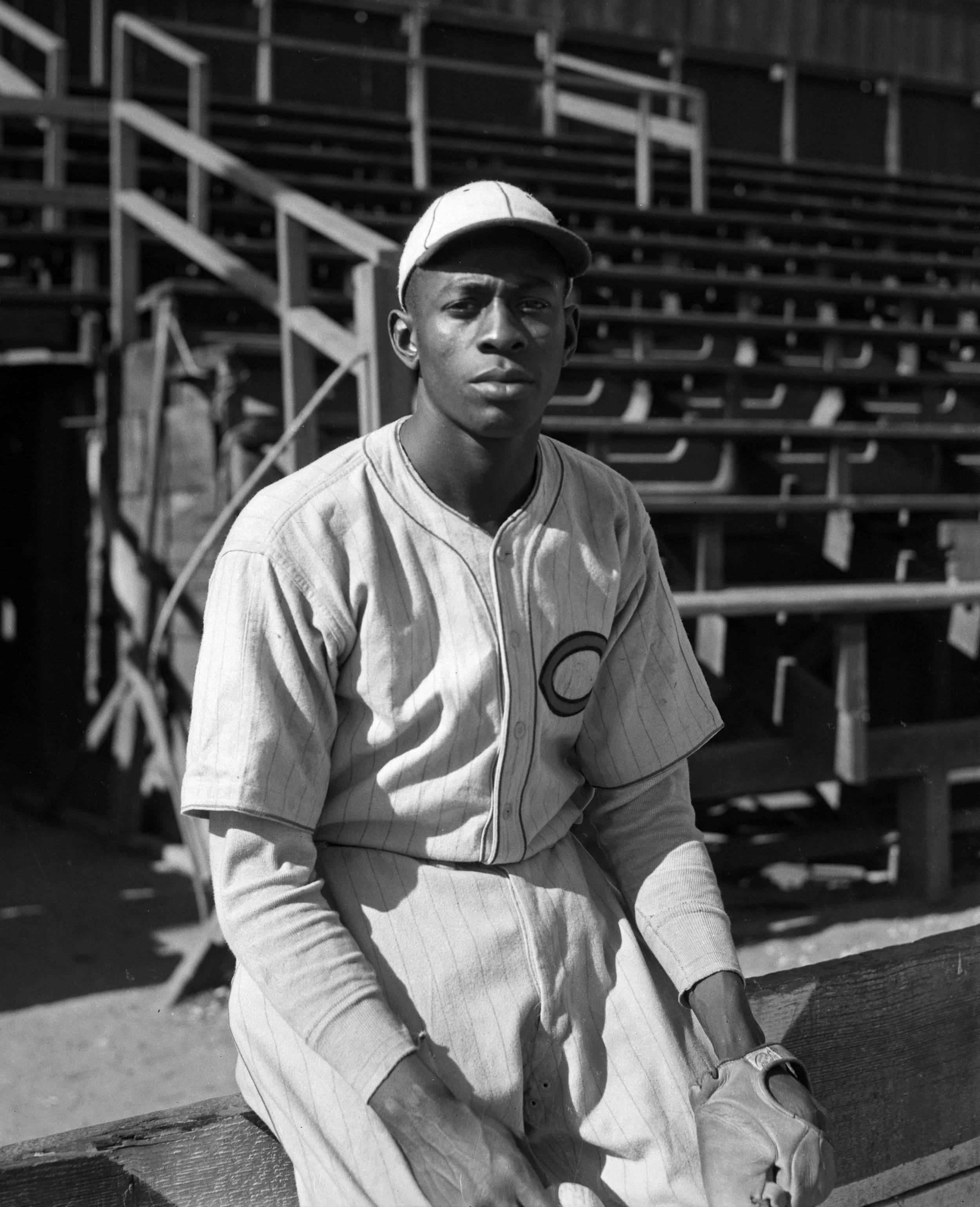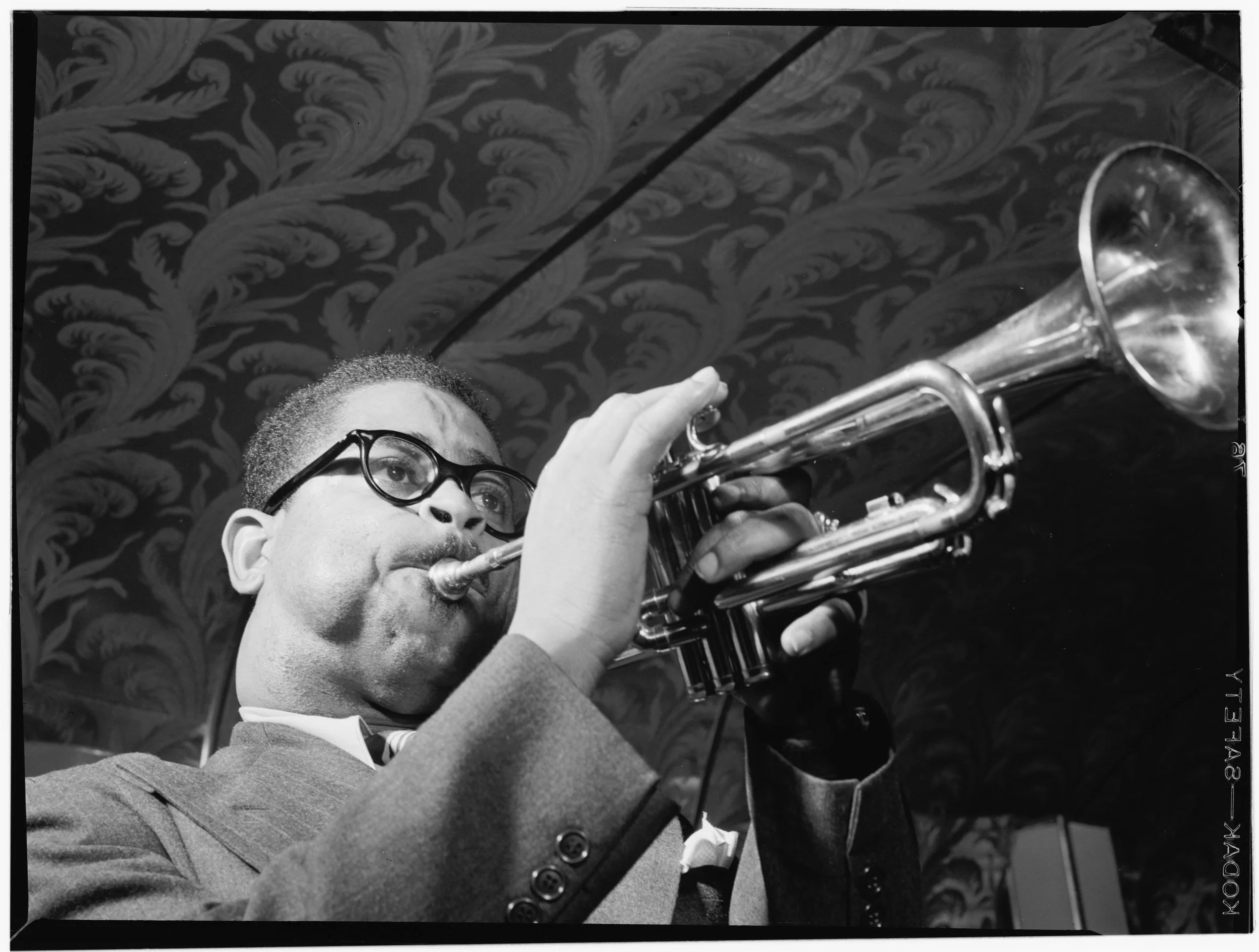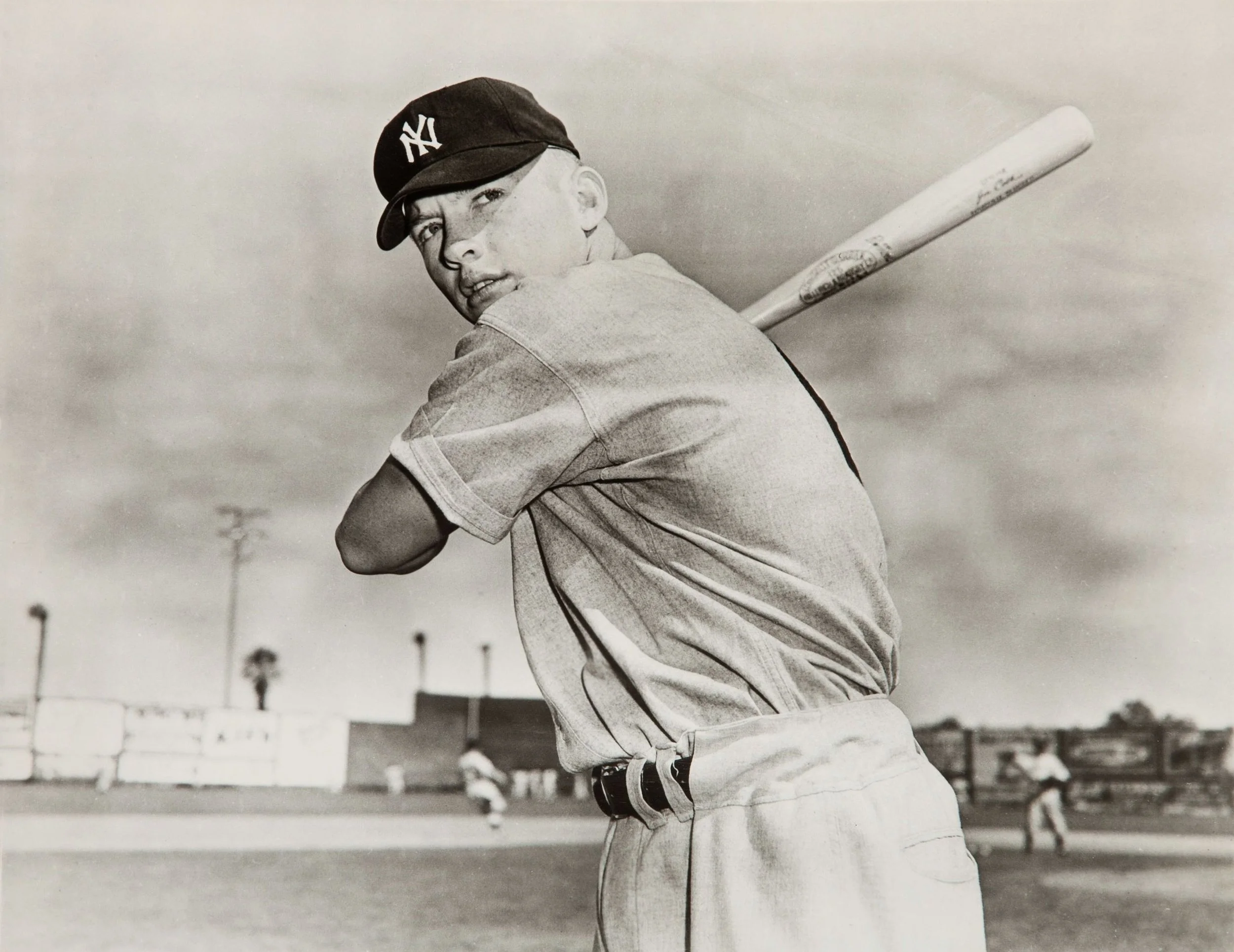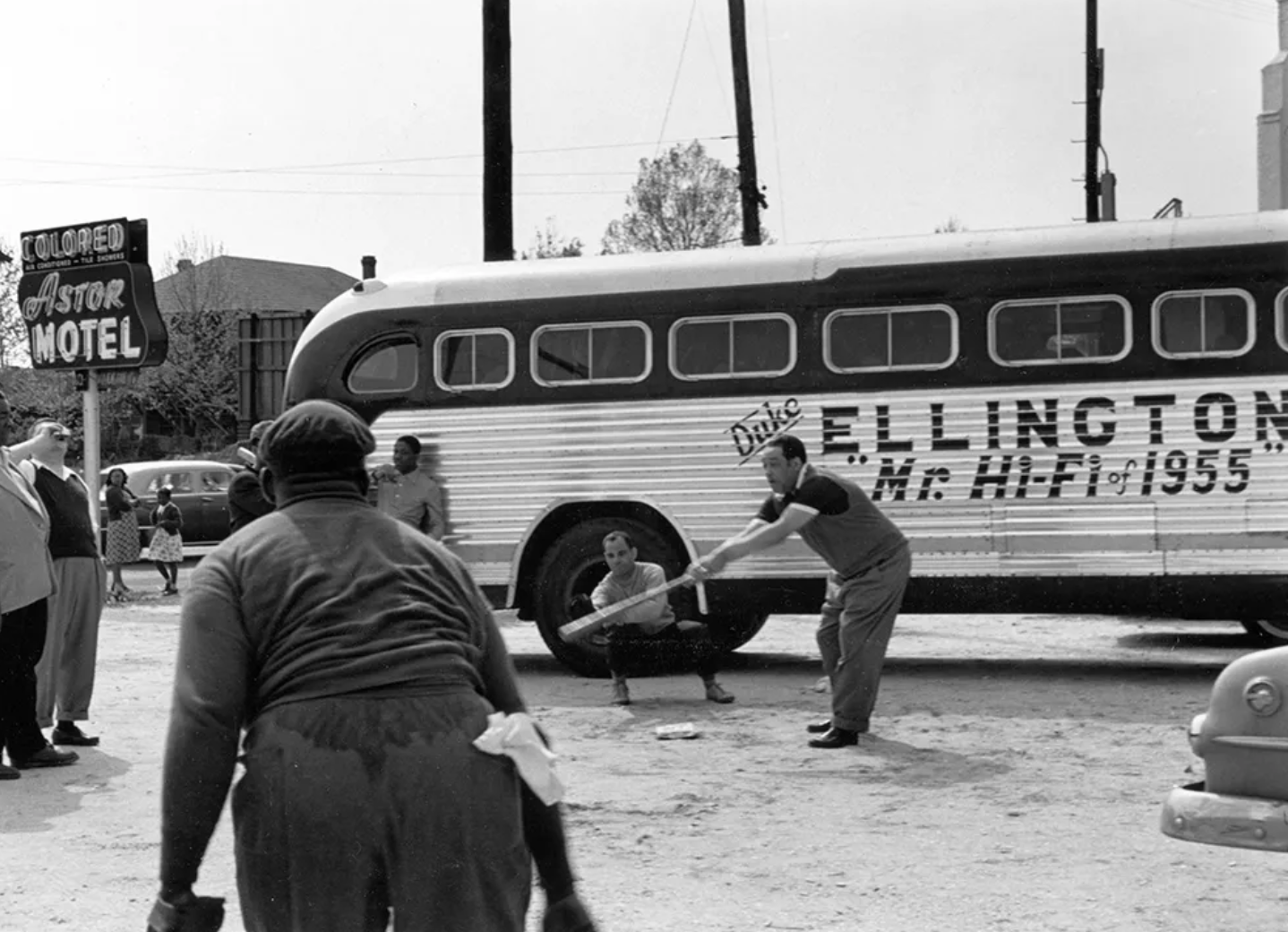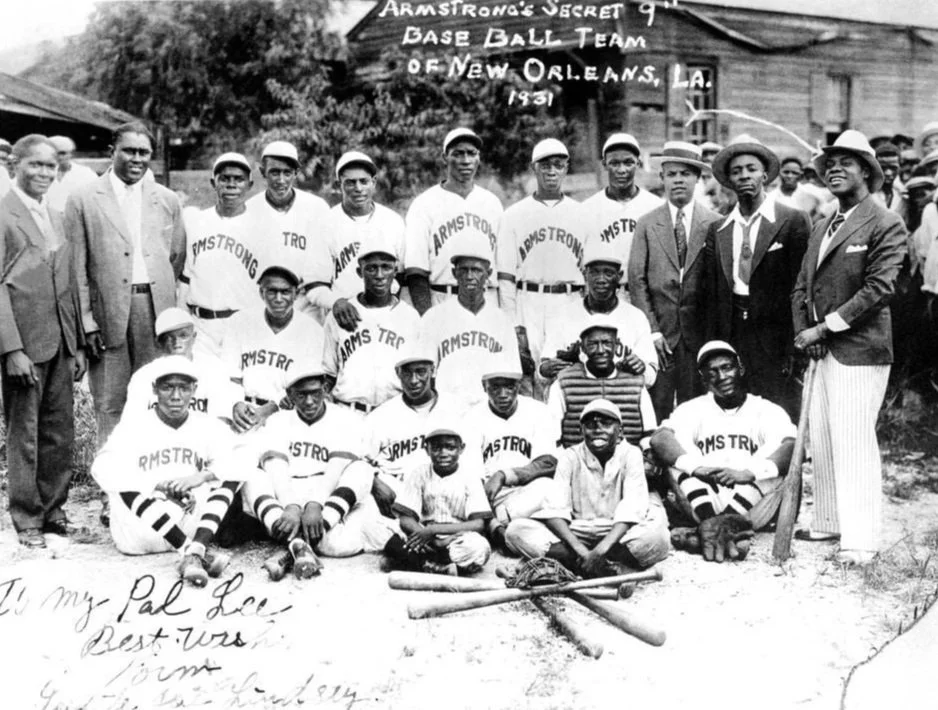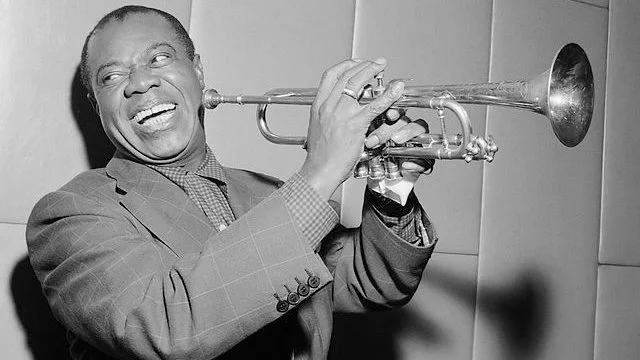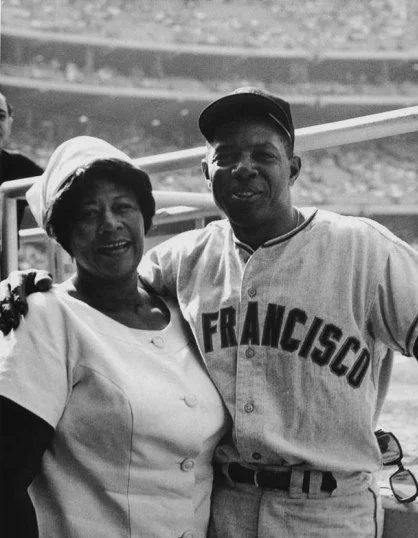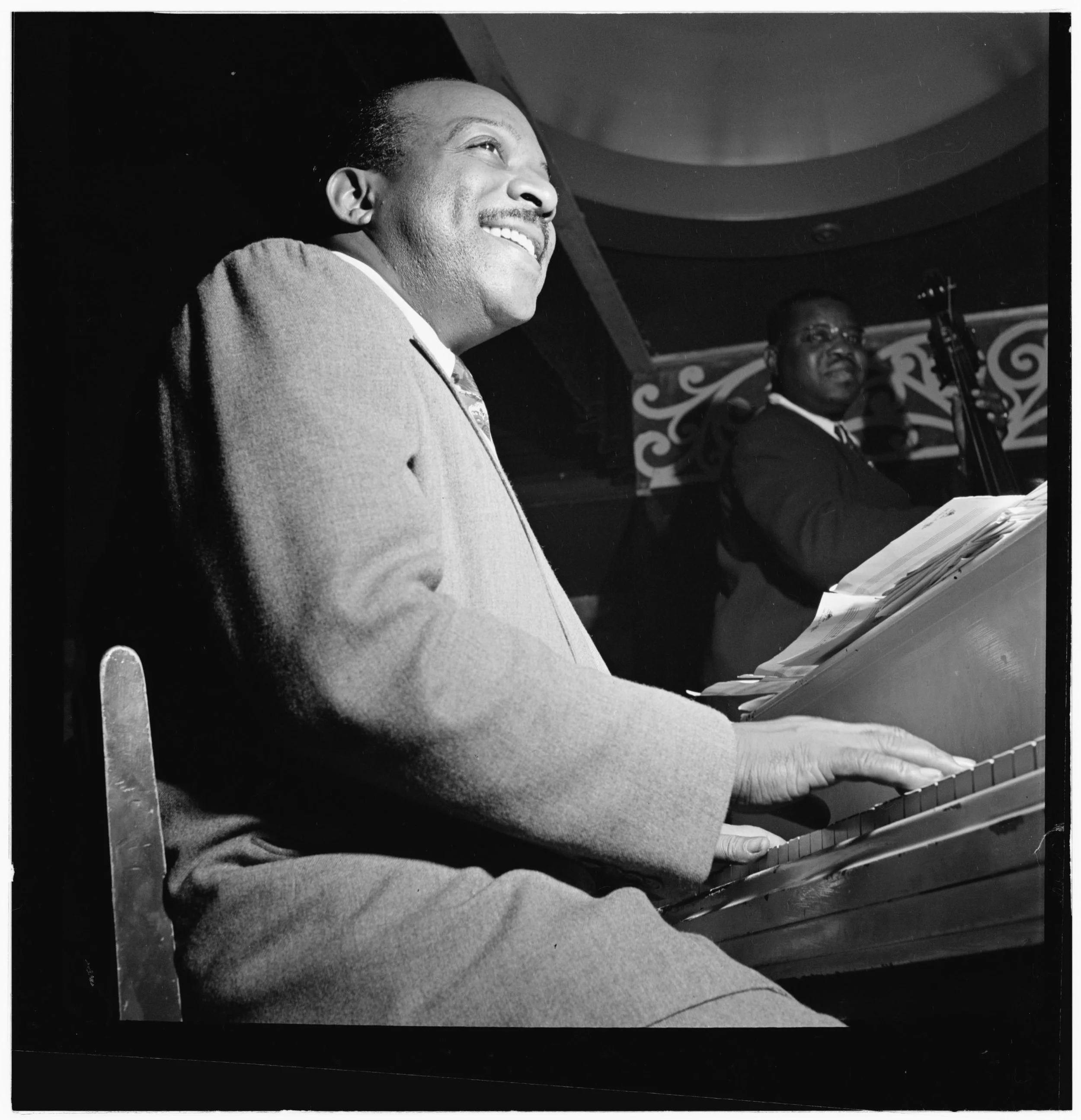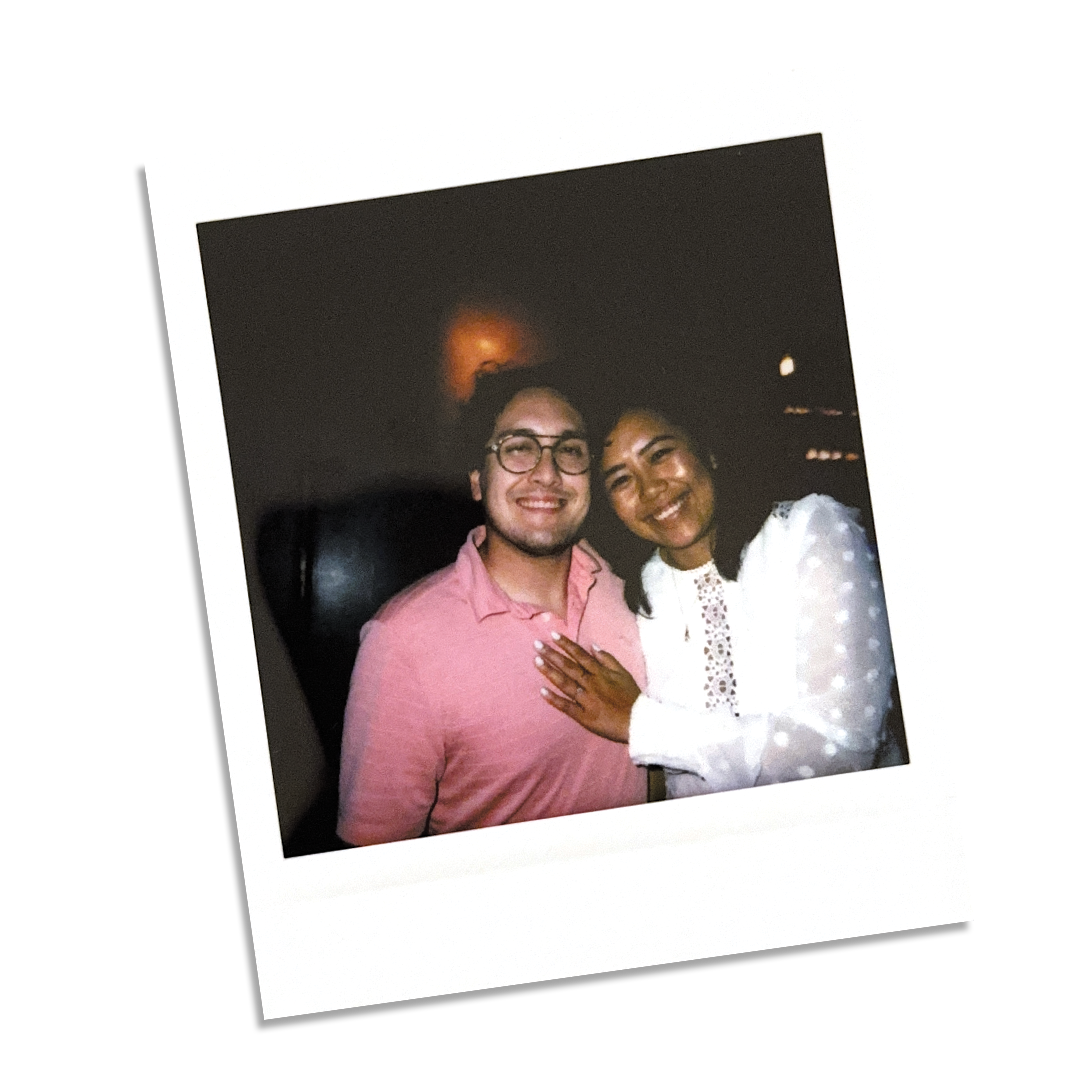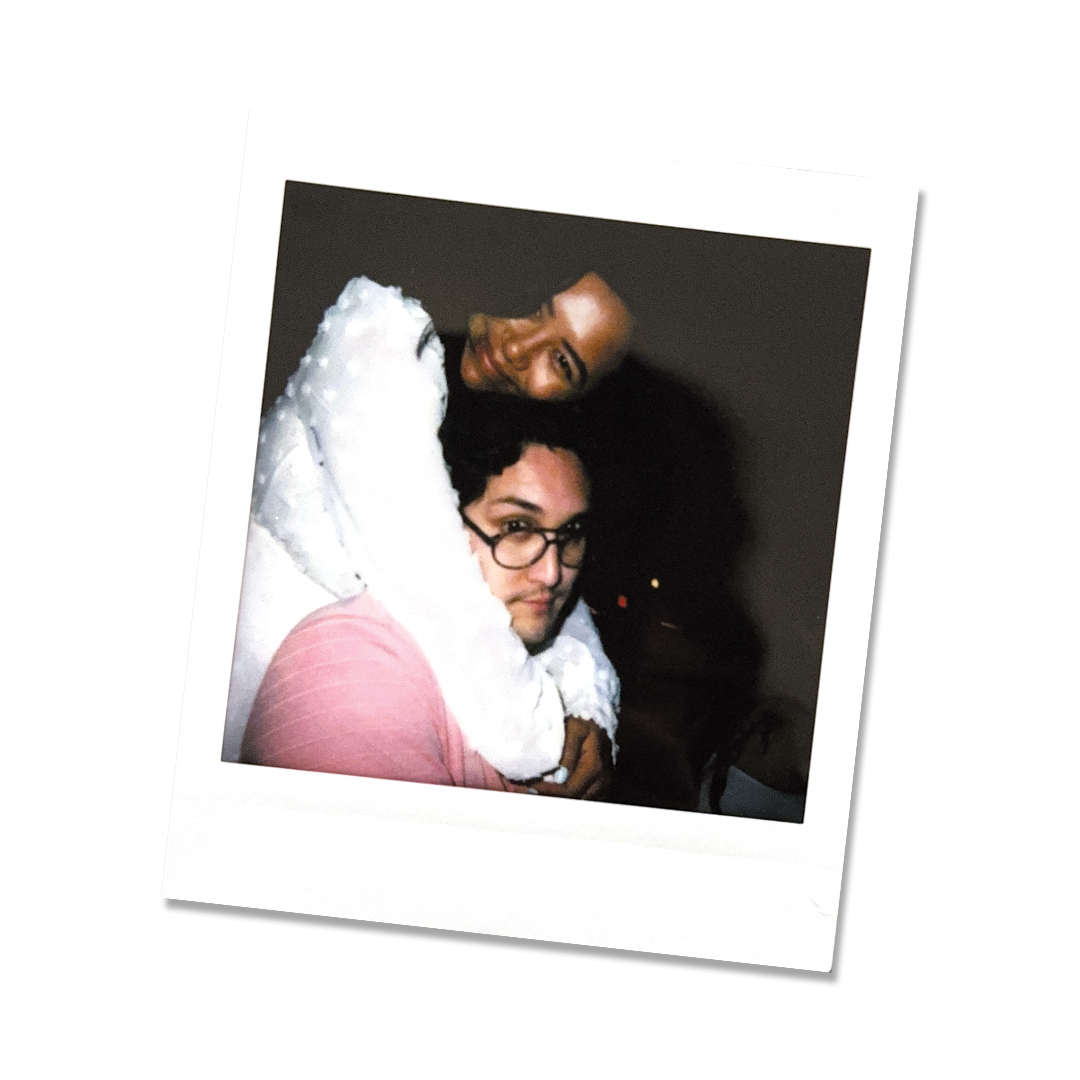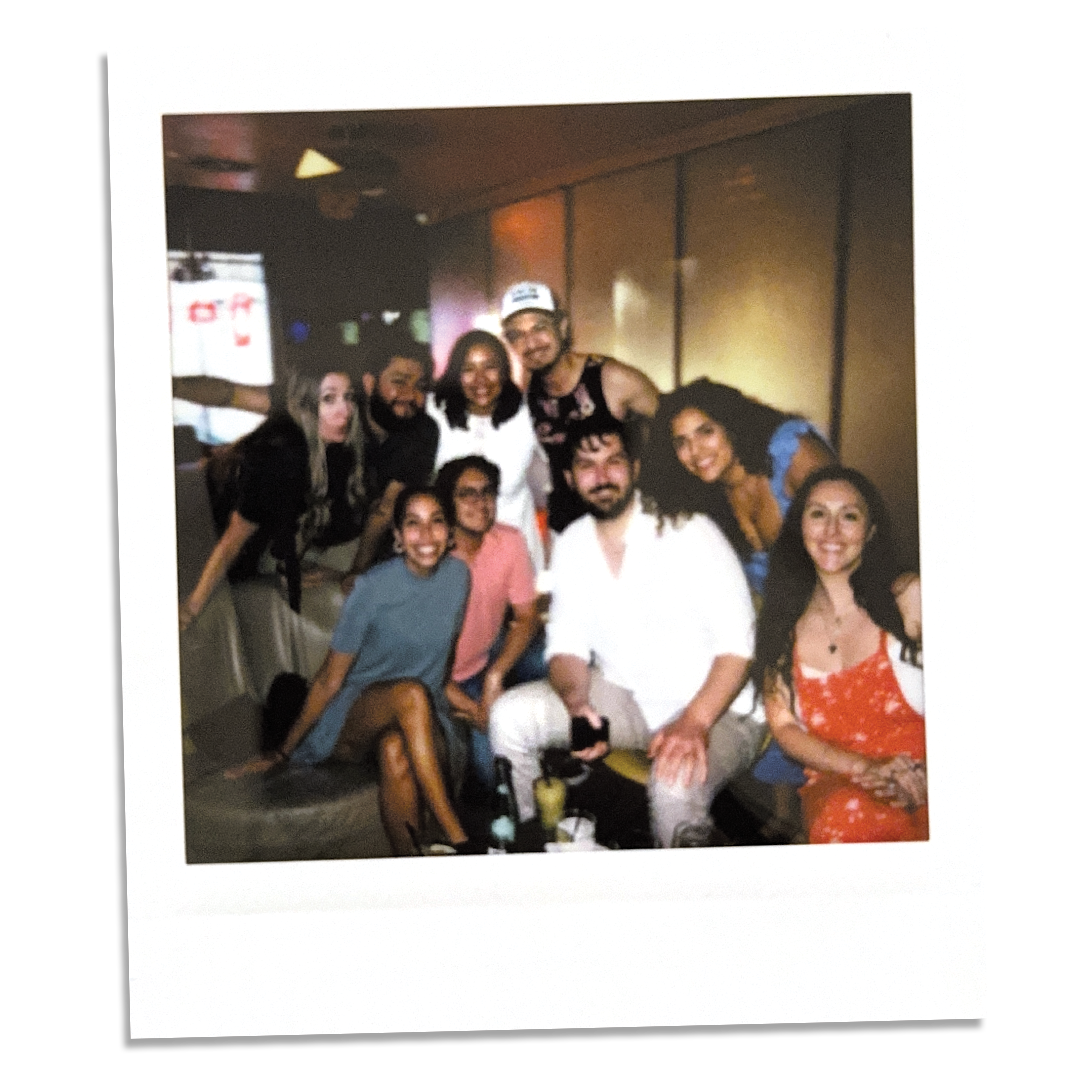Our Story: Baseball + Jazz
To fully understand our relationship, one must first examine and appreciate the shared histories and commonalities between baseball and jazz.
When Nat introduced Greg—once a baseball skeptic—to the finer intracacies of her favorite sport, she framed it (like a catcher framing a pitch) through a lens familiar to him as a classically trained drummer: jazz. She explained baseball as the quintessential American pastime, embodying many of the same qualities as jazz, one of America’s most iconic cultural contributions. Both have made profound cultural impacts and share rich, sometimes intersecting histories.
For example, Mickey Mantle and Satchel Paige, some of the greatest ball players of all time, often attended jazz clubs after games, rubbing shoulders with legendary musicians like Dizzy Gillespie, Count Basie and Duke Ellington.
Duke himself was a passionate baseball fan who frequently attended games during his tours, while his one-time collaborator Louis Armstrong enjoyed playing catch between recording sessions and even sponsored a local New Orleans sandlot team, buying them new uniforms and equipment.
Ella Fitzgerald, the “Queen of Jazz,” was a devoted baseball fan. She not only attended games regularly but performed at baseball-related events, including benefit concerts for the Negro Leagues and at the 1977 World Series.
Philosophically, playing jazz is much like playing baseball. Both of these disciplines celebrate players’ individual contributions towards shared goals, progress and personal achievements, while embracing collaboration and encouraging mutual support—all in pursuit of perfect harmony and artistic or athletic innovation. The sport and the genre alike prove that individuality flourishes within the framework of collaboration. In many ways, they reflect, and even help define, core American values.
“It starts with Portland Beavers pitcher Ben Henderson telling the Los Angeles Times that for the opening day game against the Angels he was planning on pitching a ‘jazz ball,’ his name for a wobbly pitch that had so much motion on it that batters wouldn't know what to do with it.”
Jazz and baseball demand a nuanced understanding of their deep complexities, requiring a balance of improvisation, intentionality and focus, strong fundamentals, continuous refinement of skills, disciplined practice, teamwork, timing and rhythm. Just as a jazz performance develops gradually, with tension giving way to remarkable moments, so too does a baseball game.
when they study our civilization two thousand years from now, there will only be three things that Americans will be known for: the Constitution, baseball and jazz music. They're the three most beautiful things Americans have ever created.
- Gerald Early
As fans of baseball and jazz, We apply these same principles to our relationship and follow them with a loyal conviction. Like the fundamentals in jazz and baseball, our relationship was built on the fundamentals of friendship. Although we worked to perfect our timing, it took us 3 years to develop this friendship into a longterm romance through disciplined practice & continuous refinement of love and by applying intentionality and focus to further develop our nuanced understandings of each other.
Our relationship is one of balance—finding rhythm in our daily routines while leaving room for spontaneity and improvisation. The framework of our relationship is rooted in teamwork, collaboration, mutual support, and the celebration of our progress, personal achievements and individual contributions towards shared goals and commitments—all in the pursuit of perfect harmony and an innovative type of love that is relentlessly forgiving and endlessly expanding.
Over time, much like a jazz performance or baseball game gradually develops, our bond has resulted in a series of remarkable moments. From attending jams at Stay Gold and the Elephant Room in Austin where Greg refined his drumming in the early days of our relationship, to cheering on our Houston Astros as they won the World Series in 2022, we've shared so many meaningful memories together with more to come.
As we continue our journey, we recognize that it wouldn't be the same without the love and support we've received from our friends, family, neighbors and all who have shaped us. We don’t take this love for granted—like jazz and baseball, it’s a skill that requires ongoing practice, intention, focus and refinement. It demands experience and expended energy. While we may never be able to fully express our gratitude in equal measure, we commit to cultivating a love between each other and with those around us that is so constant that it is inevitable and innovative.
With our dog Blakey—named after the legendary jazz drummer Art Blakey—we’re excited to take our relationship into extra innings.
how could you not be romantic about baseball?
More Baseball + Jazz Trivia
Dusty Baker, a successful player and former World Series-winning manager of Nat & Greg’s favorite team, the Houston Astros, has a deep connection to jazz. His father, Johnnie Baker, was a jazz trombonist. Dusty himself grew up listening to jazz legends like Miles Davis and John Coltrane, and he maintains a strong passion for jazz music.
Oscar Peterson, Nat’s favorite jazz pianist, had a passion for the sport and originally dreamed of becoming a professional baseball player. However, after contracting tuberculosis, his athletic ambitions were cut short. During his recovery, he turned his focus to music, and the rest is history. His love for baseball, though, stayed with him throughout his life.
Ron Washington, current MLB manager for the Angels, is a noted jazz enthusiast and often spoke about how jazz music influenced his approach to the game. He would listen to jazz before games to help him relax and focus, citing the improvisational nature of jazz as a parallel to how he managed baseball players and games.
Benny Goodman, the "King of Swing," frequently incorporated baseball into his performances.
John Coltrane famously titled “Syeeda’s Song Flute” after his stepdaughter, whose nickname "Syeeda" was derived from the baseball term "sidearm."
Charles Mingus, known for his complex compositions, even wrote a piece titled "Don't Be Afraid, the Clown's Afraid Too," which featured sounds from a baseball game.

